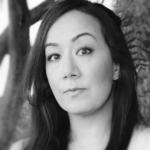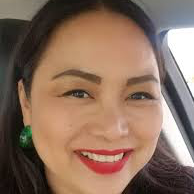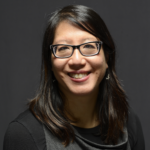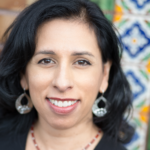What I Will Tell My Daughter
When her daughter asks her how it was to be a Pashtun, Muslim woman living in America, she will breathe out all the stories she has held in her lungs, until she is blue in the face, waiting for the day her daughter gains awareness that being a woman makes everything more complicated.
She will exhale and begin like this:She will tell her about the old woman in Pakistan who wrinkled her nose.
“This one,” said the elderly woman, looking at the young girl with meaningful scorn, “she is going to be trouble.”
The girl was visiting Pakistan one summer when this unwelcome prophecy was bestowed upon her. The blunt words of this lady, a relative Mama loved, cut deep. The young girl adjusted her glasses, ran her tongue over her braces and wondered what the woman saw. The girl wore a simple, demure cotton partoog kamees that Mama had chosen for her. Even Mama was more vibrant, wearing a bright purple outfit.
Her usually poised mother bared her teeth and told the elder that she had a good daughter. The daughter, in turn, reveled in the rare show of positive words and went back to reading “Little Women.”
Secretly, the girl was excited that she appeared to be like Jo–a rebel–even if she couldn’t figure out how she was anything but a misfit. How she never quite fit into any of the boxes that were put in front of her.
She promised herself that when she grew up and had her own daughter, she would raise a daughter who was not easy. She would raise a complicated and difficult daughter.
+++
She will tell her daughter about when she was in the seventh grade and her teacher was upset that she had read “The Outsiders” and done a report on the book.
“Is there something wrong with the book?” she asked Dr. James.
“Yes, a good girl like you should stay away from books that glorify vulgarity and violence.”
She didn’t really notice the vulgar, she just loved Ponyboy’s relationship with his brothers and friends. She wondered if the hijab made Dr. James think that she was unable to think critically and beyond what was written on the page.
“America is corrupting you already,” Dr. James shook her head.
“But I am American,” she reminded Dr. James.
+++
She will tell her daughter that it started on her very first day of school, as a five-year-old kindergartener. Right away she was taunted for being different.
It was the first time she was away from Mama, who had always acted as a buffer against the harsh world.
At home in Redwood City, her parents spoke to her only in Pashto. So when she went to school, her lack of English coupled with her dark hair and dark eyes, led the teachers to believe that she was a Spanish-speaking student.
She was placed in an ESL class where the teacher spoke to her only in Spanish. She cried quietly the whole class. Only when Mama showed up with her smooth, long, black braid in her long, colorful, silk partoog kamees, did the teacher look relieved.
She walked out of her classroom, holding tight her mother’s hand when a group of middle schoolers shouted, “Sand ni**ers!” She didn’t know what it meant, but by the sneer on their faces, she knew it was something bad. The words stayed with her. It wouldn’t be the last time she would hear them, and other names, in her life.
She looked to her mother for help, but Mama kept her chin high and didn’t flinch. They walked to the car, Mama’s clothes flowing regally behind her.Like Mama, she squared her shoulders and tried not to react.
+++
She will divulge the story of when her father was a boy in Pakistan. There was a bride in the village who asked to see the elder and leader in the community, who happened to be Baba’s father, BabaJee. It was the bride’s wedding day and she had locked herself in her room. She stood on her bed, held a rifle and demanded to be heard.
When BabaJee got to the house, she told him that she did not want to marry the man her father had chosen for her. BabaJee told the imam who was supposed to officiate the marriage of the girl’s rejection and the imam called off the wedding, saying it was invalid.
After, there was a lot of talk in the village about this girl who brought shame upon the family, but her wishes were respected and she wasn’t forced to marry the man she didn’t want.
“Baba, what happened to her?” she asked her father after he finished telling the story.
“She never married and ran her father’s household as a son would. People learned to respect her for being strong.”
She knows that the woman did well and that she wasn’t compelled to marry another person. But a part of her wondered if she didn’t marry because no one wanted to marry the girl with the big mouth or the girl who caused dishonor to her family.
It didn’t matter because she had spoken up and lived a life of honor and strength– she did this by changing how her life story played out. By rejecting marriage and living as her brothers had (within certain restrictions, for sure) she silently showed the community that a woman can be content even if she does not marry.
Fierce women have always been around–even if no one heard about them. She longed to be like this girl, who gave up so much for what she believed in.
+++
She will tell her daughter that one time, when she was in third grade, a boy named Brian Lewis shouted from across the park, “Look at the camel jockeys having a picnic!” Brian was in her sister’s second grade class. He told kids at school about how their family wore tents at home and about the strange hats Baba wore. When she told him that she liked being original, he told her that she wasn’t original, she was weird.
“Ignore them,” she ordered her brothers, sisters, and cousins. They all pretended not to hear the laughter that was only getting louder and closer.
“Didn’t you hear us? Or do you not speak ENGLISH?”
Brian would not let up.
“Why don’t you leave us alone?” she finally yelled.
“Shut up, towelhead,” Brian yelled back. “Why don’t you go back to where you came from?” A gang of five kids stood behind him, all different ages.
She ignored him and moments later, Brian and his friends were bullying her young cousins on the other side of the swings.
“Look who’s here,” Brian said to his friends. “It’s the Ay-rab girl!”
I’m not even Arab, moron, she wanted to say. But she doubted he knew what a Pashtun was so instead, she hit him–straight punch to the nose. He doubled over crying. She didn’t feel ashamed. Later, in the evening, when Baba found out, he asked her what happened. When she told him, he asked her if he cried.
“Yes, Baba.”
He nodded and told her to watch Jeopardy with him.
+++
Once when her father was returning from a business trip to China, he had a stopover in Texas. Mama and the girls waited at the terminal in San Francisco or two hours before they went home. There were no cell phones and there was no way for Mama to know where Baba was. They sat by the phone and waited.
He called seven hours later. He was still in Texas. Airport Security, Customs and Immigration officials had detained him. He explained to them that he was an American engineer who was managing the project in China, but all they saw was a non-white male with a beard named Mohammad Khan.
After hours of interrogation, they let him go without an apology.
They all went back to the airport in the middle of the night to pick up a weary Baba, who decided to pay extra and get the special security clearance that allowed you to sail through the security process so he would never have to face such an interrogation again.
“But what did they ask?” the girl wondered.
“I don’t want to talk about it.” Her father shut tight, never told her.
And this sealing of the story told the girl all she needed to know about the incident.
+++
She will tell her daughter about the two-year period when her house was “doorbell ditched.” Someone would ring the doorbell and leave before they could answer the door.
Almost every night, around midnight, when they were all in bed, the sound of the doorbell shocked them out of sleep.
Baba called the cops after a month of this. They did nothing.
When Baba realized it was some children from the neighborhood doing it, even though it was “inconvenient”, he never called the cops again. He would step outside while his children sat terrified in their beds, under their blankets, and shout, “Who are you? Why do you bother us?”
Of course, no one answered.
She suspected that it was Brian, but he was only a kid with no way to leave the house. It had to be someone older–probably someone more dangerous. And so she said nothing and endured the nightly terror.
Eventually this stopped. The terror became a faint memory even while it was still woven into the fibers of her being.
+++
She will tell her daughter about the time Baba gave her a heart-to-heart when she was thirteen.
“Sabina, this life is short. Our lives are a test and we must remember to always put others first no matter what. We respect elders, are gentle to those younger, generous to our guests, and kind to all we meet. But we must always stand up for what we believe,” Baba said to her after school one day.
She remembered how a boy kicked her shoes during P.E. because they weren’t Nikes and how she called him a jerk.
“But what if someone is wrong or mean to us? Not really going against what we believe.”
“Like I said, you have to stand up for yourself and others, there is no question about that. Sabina, when I was younger, they’d ask me if I wanted to be honey or vinegar. Do you know what I said?”
Honey. Definitely honey.
“Sometimes vinegar is better,” Baba said, “Sometimes, vinegar is what is needed. Sometimes we don’t want what horror the honey may attract.”
+++
There were also some scary stories. When she was fourteen, she went on a hike with Mama and her sister. Mama, who wore her partoog kamees with her sneakers, walked ahead of the girls. She stopped and pointed to a wild rabbit she saw in the grass.
The girls moved closer to watch the animal and soon Mama was out of sight.
“Hey, you!” the sound of a man startled them out of their awe.
Three young men sat at the side of the road on large rocks.
She grabbed her sister’s hand, ready to fight.
Mama had turned back.
“What do you want?” Mama yelled at the young men, who were no more than 17.
“We were wondering how many camels you would want for your daughters?”
“Fuck you,” she said, forgetting that Mama was nearby.
The boys laughed.
“Get out of here before I kill you,” Mama said, her voice cold.
The boys laughed. Mama didn’t blink.
“Let’s go. She probably has a bomb under that turban,” one of the boys laughed.
“Don’t ever walk away from me,” Mama said. “It is dangerous for Muslims, especially Muslim girls. Who knows what would’ve happened if I wasn’t there?”
“I wouldn’t worry too much, Mama, you taught me well,” she told her mother.
Her mother concurred but insisted on walking behind them for the rest of the trail.
+++
She will tell her daughter that when she had her, she was pleased to see that her daughter was strong-willed, demanding attention when she entered any room. As a young girl of seven, her daughter held the attention of many, telling interesting stories and voicing opinions about everything. With her eyebrows raised, chin high, her young daughter put her hands on her hips telling her father, brother, and mother (all older than her) what they should be doing.
She watched her daughter silently, not stopping her. She reveled in her daughter’s natural strength and confidence.
In her daughter, she saw all the things she was when she was younger–confident and assertive, with a strong voice but without the big personality or charisma of her daughter.
She knows that if she was really lucky, her daughter would not be the girl demanding to be heard, but the one called upon when there is a conflict in the village.
Women in most cultures feel compelled to conform and bend themselves to make others happy. But not her daughter.
“Your name is ANABIYA, not Ana, not Nadia. You make sure to tell your teacher that,” she told her daughter. And her daughter does not respond to anything less than the perfect pronunciation of her name.
+++
She will tell her daughter that the old lady in Pakistan who predicted that she would be trouble was probably right. She was not the poster child for how a Pashtun woman should live her life: she asked questions and voiced her opinion when it was best to stay quiet; dared to dream beyond having a husband and the security of married life; and she identified as a feminist. Nor was she a poster child for how an American woman should be either: she chose to stay Muslim at a time when most Americans–even liberals–thought that Islam and feminism were incompatible. They imagined a demure, silent woman who relied on a man to make her decisions.
She was somewhere in between. She will teach her daughter that the space in between is the best place to exist, for it allows for growth beyond the harsh walls and boundaries that others create for you.
+++
She will tell her daughter a story she herself never expected to hear.
“Is everything OK, Baba?” she asked her father one day recently when he called her in the midafternoon. It wasn’t very often he called and when he did, it was in the mornings while the kids ate breakfast so he could talk to them.
“Yes, I just came back from my walk,” he said. She imagined him walking around the big park in front of the house.
“You’ll never believe what just happened.”
“What is it, Baba?”
“Do you remember a boy named Brian?”
She stopped stirring the meat sauce she was cooking and stood very still.
She thought for a minute.
“I don’t know anyone named Brian now, but there was a boy named Brian in Saira’s class. He lived in our neighborhood.” She shuddered at the memories.
Her father told her about meeting someone named Brian while on his daily walk around the park.
Well, the young man was really polite. He said, ‘Excuse me, sir.’ So I stopped and looked at him. I didn’t recognize him…
‘You don’t know me, I went to school with your daughters. I had to talk to you…I can’t live with myself,’ he said.
‘Why? What did you do?’ I asked him, confused by what he was saying.
The man looked sad. He said, ‘When I was a kid, me and a bunch of kids used to bother your daughters. We would ring your doorbell in the middle of the night and watch you turn on your lights and come out of the door. It is something I’m not proud of. It’s something that has stayed with me and kept me up at nights. I was such an asshole. I want to say I am so sorry for doing what I did. I hope you and your family can forgive me.’
I started laughing and said, ‘That was so long ago. And you did cause us so much discomfort. Of course I forgive you. What’s your name?’
He said, ‘My name is Brian. I was in your daughter’s class for almost all of elementary.’
‘Ok, young man,’ I said. ‘I’ll tell my daughter. Have a nice day.’
‘You too, sir.’ He smiled and walked away.
Baba laughed.
“Can you believe that? After all that it was a young boy?”
After hanging up, she leaned against the kitchen counter. She had always suspected it was Brian or one of his friends, but what she never ever expected was that he would be sorry for what he did.
Maybe Brian apologizing made Brian feel better, but all she felt was anger at Brian for all of those sleepless nights. She felt vindicated for being right, and she felt sad that Brian hated them so much.
She will tell her daughter that she never forgave Brian and she never will.
+++
“Your daughter looks just like you,” the librarian told her once.
She looked at her daughter and saw a beautiful, vibrant child who looked nothing like her.
The compliment left her feeling confused because in her eyes, there was no one as beautiful as her daughter.
She told her parents later.
“Sabina, you should see yourself through our eyes. You are the most beautiful girl I have ever seen. A strong force who never backs down.”
And she will then realize that her parents had told her the same stories she is now telling her daughter.

Sabina Khan-Ibarra is a writer and an educator. She is a recent San Francisco State University Graduate with an MFA in Creative Writing, where she now teaches Creative Writing. She is currently working on her novel, The Poppy Flower. She currently resides in Northern California with her husband and two children.

 BACK TO ISSUE
BACK TO ISSUE


